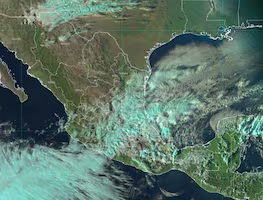Más Información

Frente frío 21 y tormenta invernal golpean México; alertan por caída de nieve, aguanieve y temperaturas bajo cero

Martí Batres se reúne con Ariadna Montiel y Alejandro Svarch; discuten estrategia de "La Clínica es Nuestra"

Ken Salazar se va de México entre "choques" con AMLO y Sheinbaum; aquí un recuento de los polémicos encuentros

Ministro Alcántara Carrancá advierte sobre la "fácil destrucción" del legado constitucional; “sorprende que no hubiera ocurrido antes"
The American society is increasingly embracing the consumption of cannabis , with more and more states not only legalizing its consumption for medicinal therapy but expanding it to recreational use.
With the medicinal use established in more than half of the country ( 29 states , to be exact), the new front is on the legalization of its consumption and sale for the leisure of who smokes it.
The first to start the trend was Colorado . The good results led to the same change in Oregon, Washington, Alaska, and Nevada , states in which it can be sold and consumed legally, whether for medical or recreational use. Three other states ( California, Maine, and Massachusetts ), as well as the District of Columbia , allow their consumption, but not its sale.
Today it is a sector that moves more than USD$6 billion and employs more than 150 thousand people. The growth is predicted to be exponential: in 2020 it is expected that cannabis will create more jobs than the manufacturing industry.
Colorado, the first state to fully approve its use, has raised more than USD$500 million in marijuana taxes since January 2014.
Other states could follow next year, such as Arizona, Florida, Idaho, Michigan, Mississippi, Missouri, Nebraska . These are some of the territories with initiatives which could take advantage of the elections in November 2018 to pass laws in this regard.
Matthew Karnes
, a pro-legislation analyst, predicts that by 2021 all US states will have some legislation that will allow recreational consumption.
However, Attorney General Jeff Sessions wants to return to the " war on drugs " of the 1980s , and the President does not seem to have any intention of stopping him.
The Justice Department led by Sessions created a special force that is reviewing the existing federal marijuana policy , which will present its results later this month.
Former President Barack Obama tried to change the way the country views marijuana, by wanting to change the penalties for minimal possessions of the drug. In many cases it meant prison sentences, mostly affecting young African-American men , which not only generated a marked increase in the prison population (at the cost it represents), but also the stigmatization of a very specific part of society.
mr






